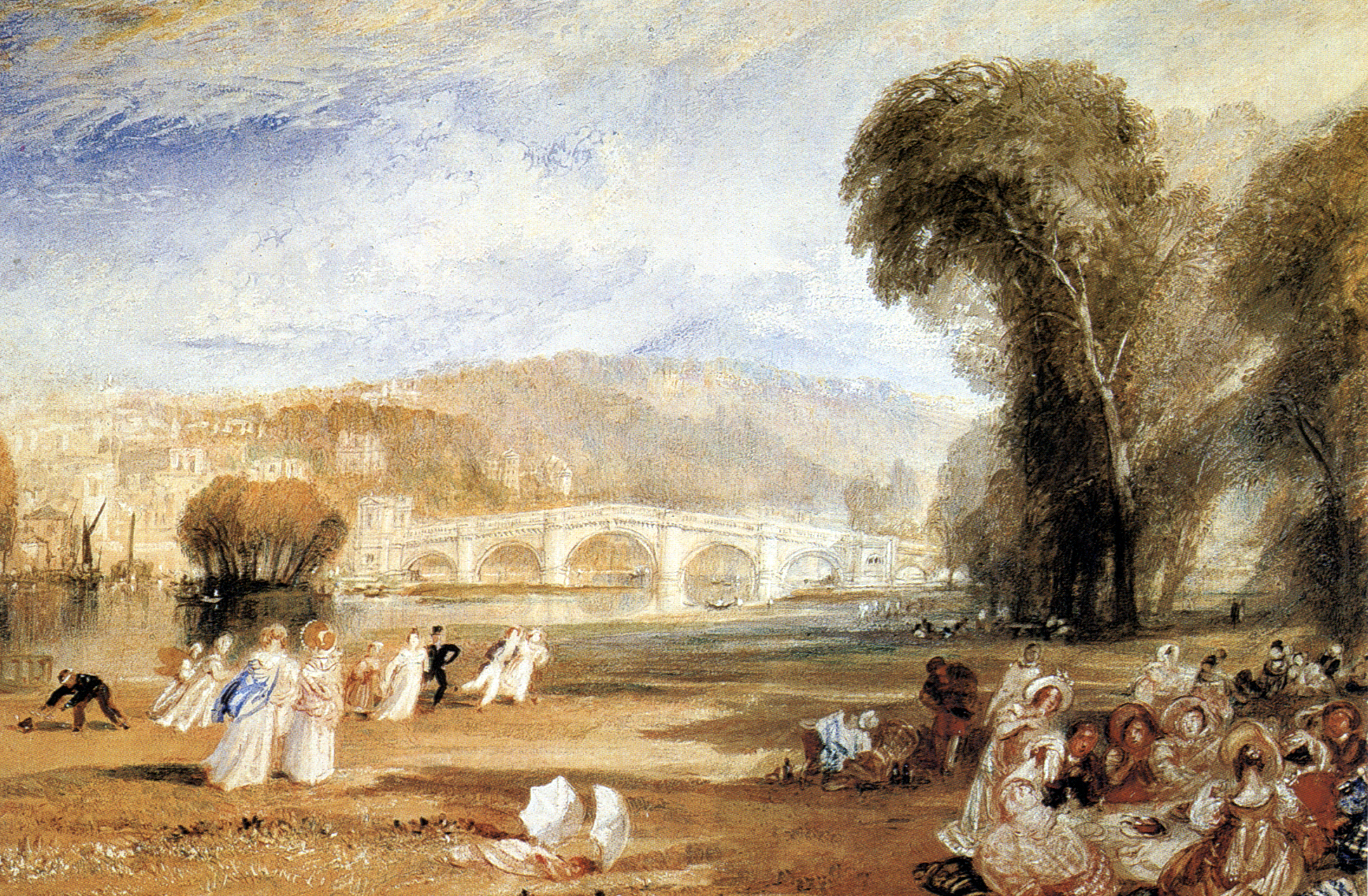 John Ruskin was introduced to Turner’s works when his father gifted him with the watercolor painting Richmond Hill and Bridge, Surrey (1828). According to the British Museum, the original title of the painting was Richmond Hill and Bridge, with a Picnic Party....
John Ruskin was introduced to Turner’s works when his father gifted him with the watercolor painting Richmond Hill and Bridge, Surrey (1828). According to the British Museum, the original title of the painting was Richmond Hill and Bridge, with a Picnic Party....
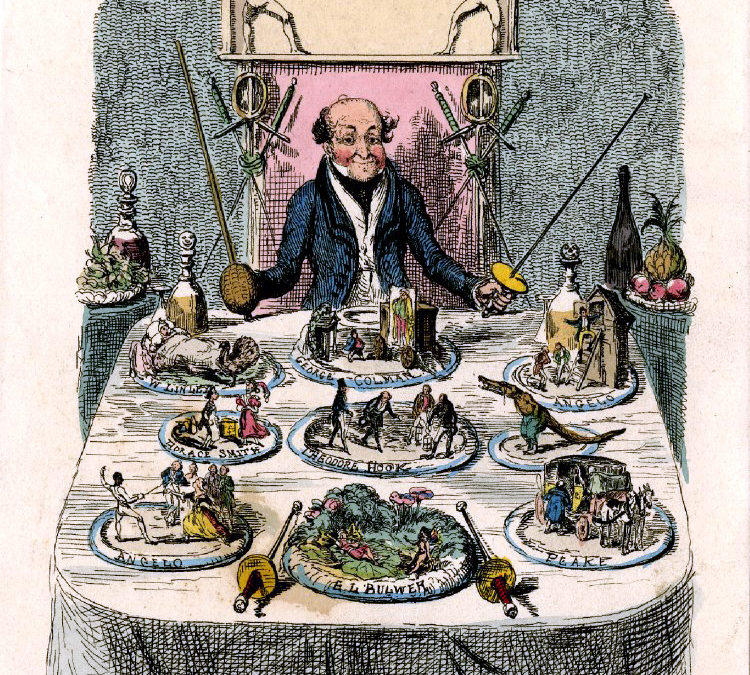 Angelo, London’s most renowned fencing master, was an original Pic Nic. His in Reminiscences of Henry Angelo (1830) is among the few first-hand depictions of the society. Angel explains that “the plan [for the Pic Nics] was derived from a friendly custom...
Angelo, London’s most renowned fencing master, was an original Pic Nic. His in Reminiscences of Henry Angelo (1830) is among the few first-hand depictions of the society. Angel explains that “the plan [for the Pic Nics] was derived from a friendly custom...
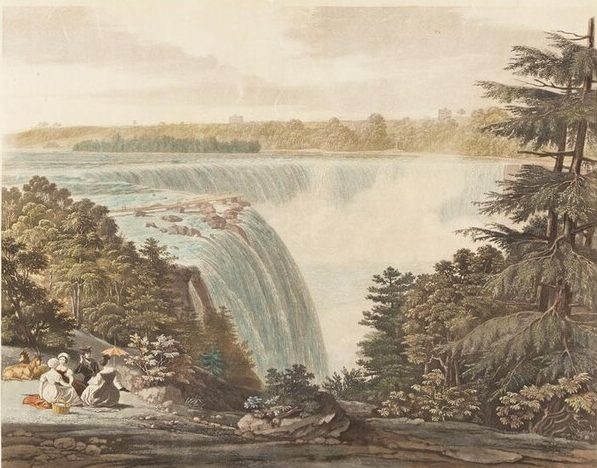 Bennett added picnickers to his Niagara Falls landscape to make the vastness of the falls seem more accessible. He placed a group of picnickers on Goat Island in the left foreground and positioned the falls beyond them. The inclusion of picnickers was pleasing and...
Bennett added picnickers to his Niagara Falls landscape to make the vastness of the falls seem more accessible. He placed a group of picnickers on Goat Island in the left foreground and positioned the falls beyond them. The inclusion of picnickers was pleasing and...
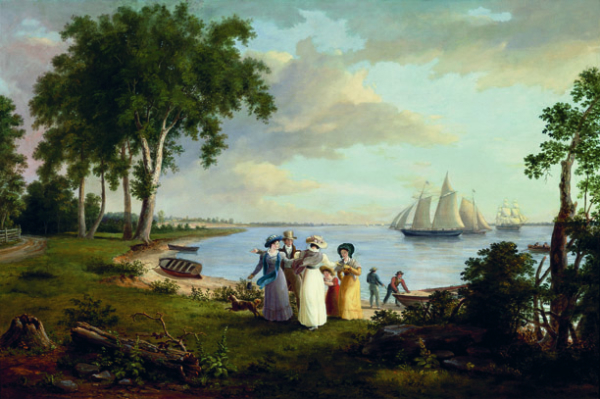 Birch’s View of the Delaware is a landscape embellished with a picnic party just arriving by boat to a destination on the shore near Philadelphia. See Thomas Birch. View of the Delaware near Philadelphia (1831), oil on canvas. The Corcoran Gallery of Art, Washington,...
Birch’s View of the Delaware is a landscape embellished with a picnic party just arriving by boat to a destination on the shore near Philadelphia. See Thomas Birch. View of the Delaware near Philadelphia (1831), oil on canvas. The Corcoran Gallery of Art, Washington,...
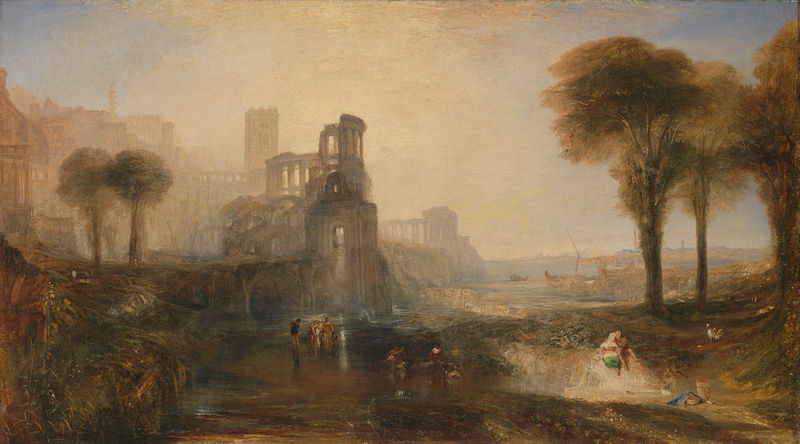 Among Suetonius’ apocryphal stories in The Lives of the Caesars (121c. CE) is Emperor Caligula’s three-mile bridge across the Bay of Naples from Baiae to Puteoli. It’s the kind of folly you associate with Caligula in one of his less savage moods, and...
Among Suetonius’ apocryphal stories in The Lives of the Caesars (121c. CE) is Emperor Caligula’s three-mile bridge across the Bay of Naples from Baiae to Puteoli. It’s the kind of folly you associate with Caligula in one of his less savage moods, and...
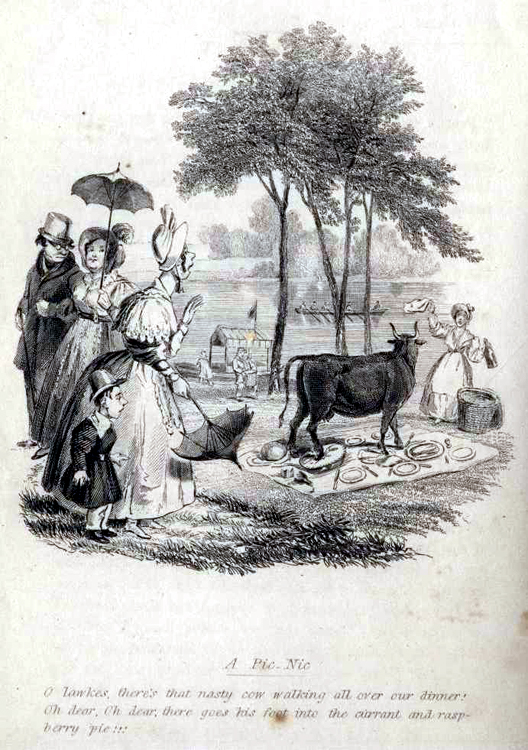 Robert Seymour’s “O lawkes, there’s that nasty cow walking all over our dinner!” (1834-36) Seymour was an illustrator, and cartoonist noted for his wit and humor. For his sketches, as opposed to a political or social cartoons. His preference is...
Robert Seymour’s “O lawkes, there’s that nasty cow walking all over our dinner!” (1834-36) Seymour was an illustrator, and cartoonist noted for his wit and humor. For his sketches, as opposed to a political or social cartoons. His preference is...
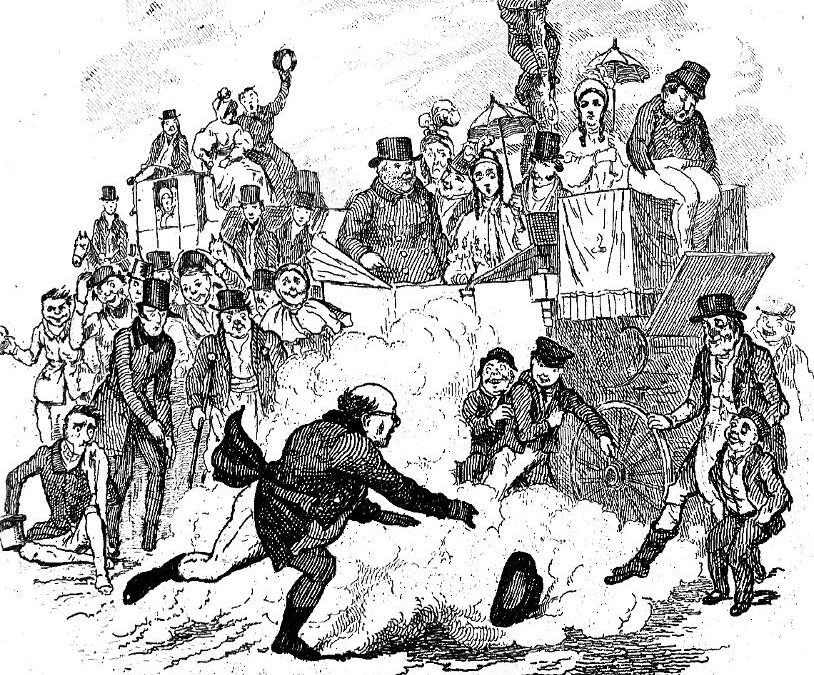 Dickens does not use the word picnic. But when the Wardles have lunch in their barouche, it’s an unmistakably a picnic: “In an open barouche, the horses of which had been taken out, the better to accommodate it to the crowded place, stood a stout old...
Dickens does not use the word picnic. But when the Wardles have lunch in their barouche, it’s an unmistakably a picnic: “In an open barouche, the horses of which had been taken out, the better to accommodate it to the crowded place, stood a stout old...
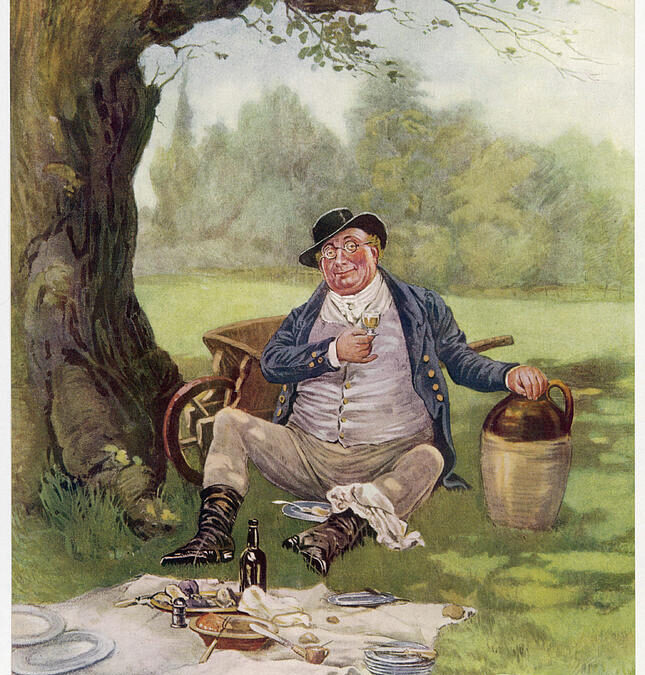 “A Pleasant Day With An Unpleasant Termination” is Dickens’s comic send-up of the Halt on the Hunt, particularly Jean-Anthelme Brillat-Savarin’s The Physiology of Taste, or Meditations on Transcendental Gastronomy (1825). Much of the comedy...
“A Pleasant Day With An Unpleasant Termination” is Dickens’s comic send-up of the Halt on the Hunt, particularly Jean-Anthelme Brillat-Savarin’s The Physiology of Taste, or Meditations on Transcendental Gastronomy (1825). Much of the comedy...
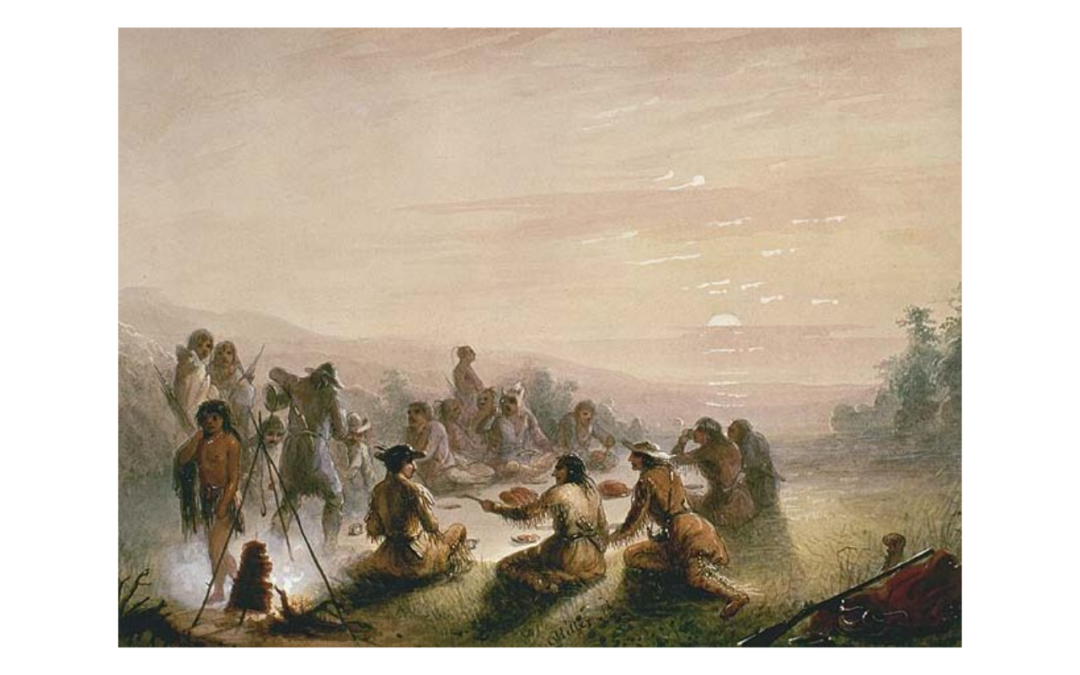 Miller’s in Breakfast at Sunrise looks picnicky, but it’s how adventurers and hunters dined in the wild. As a camp artist for Capt. William Drummond Stewart, a Scottish adventurer, Miller The hunters’ usual mess was served on a waterproof India...
Miller’s in Breakfast at Sunrise looks picnicky, but it’s how adventurers and hunters dined in the wild. As a camp artist for Capt. William Drummond Stewart, a Scottish adventurer, Miller The hunters’ usual mess was served on a waterproof India...
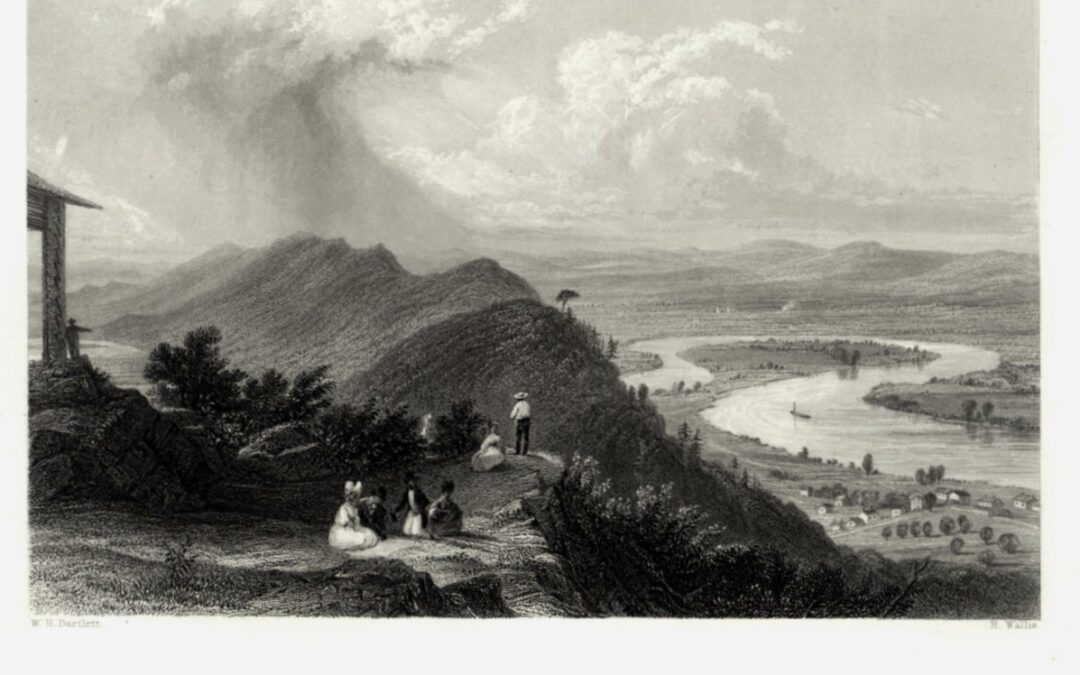 Bartlett was a British landscape artist known for his views appearing in picturesque travel volumes, including American Scenery: or Land, Lake, and River Illustrations of Transatlantic Nature. Each of the topographical landscape views was accompanied by Nathaniel P....
Bartlett was a British landscape artist known for his views appearing in picturesque travel volumes, including American Scenery: or Land, Lake, and River Illustrations of Transatlantic Nature. Each of the topographical landscape views was accompanied by Nathaniel P....











